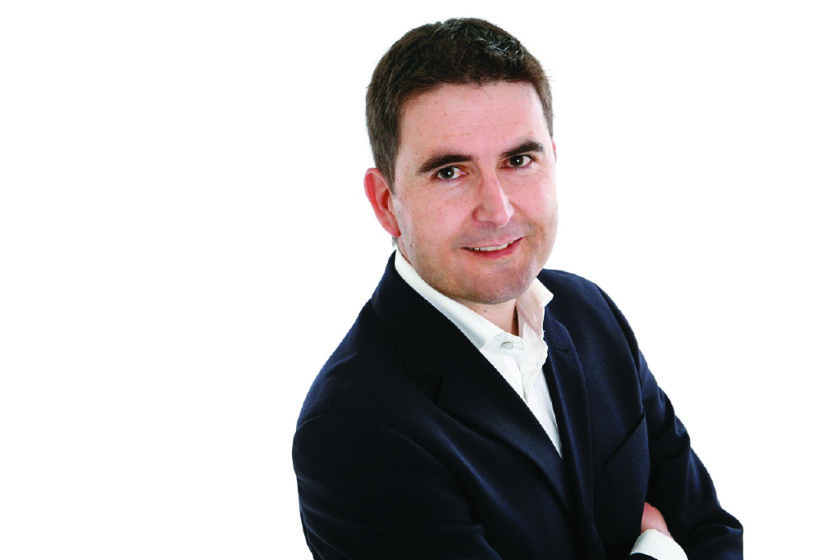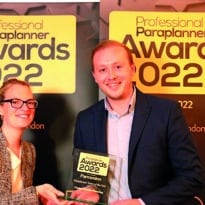IFP board member
The same ideas around sharing knowledge have imbued Richard’s work as a board member of the IFP and helped him introduce a more formal structure to that collaborative ethos.
Richard was elected to the board in 2012 and one of the first initiatives he was involved with was setting up the IFP Paraplanner Committee. He explains: “The IFP has a number of committees, covering areas like Education, Ethics and Practices and Consumer, and now there is a proper standalone Paraplanner committee.”
Alongside IFP CEO Steve Gazzard and Lucy Courtenay, CEO of FPSB UK, the IFP’s professional qualifications body, there are nine committee members drawn from the paraplanning community, both outsourced and in-house, financial planning and non-financial planning companies. “The committee meets once a quarter and provides feedback to the IFP on what’s happening in the paraplanning world,” Richard says.
The work of the committee has seen a separate paraplanning zone introduced on the IFP’s website as well as two collaborative initiatives launched this year. The first, ‘Ask a Paraplanner’, is a means for paraplanners to ask questions of their peers online; and more recently a mentoring service for paraplanners. The nine paraplanner committee members have volunteered to provide mentoring in different regions of the country, offering more in-depth help for paraplanners than can be accommodated via the ‘Ask a Paraplanner’ facility.
The overall effect has been an increased focus on paraplanning, says Richard, raising its profile and engendering support for the paraplanning role.
Powwows
It was Richard’s election campaign to become an IFP board member that led to the idea for the Paraplanner Powwows. He explains: “I had to write a brief election manifesto that was sent around to IFP members as part of the voting process. In it I made a pledge that I would do my best to create an environment, whether online or physical, to help paraplanners develop and push themselves forward. I’d also made it very clear that it had to be completely independent of any professional body and provider.
“Having made that pledge and been elected, I had to follow through with it. So in January 2013 when I was planning out the year ahead, I looked at how to do an event for paraplanners that was bit different. I felt it was important to get away from the typical event where everyone comes in a suit and tie, and is talked at by speakers who have chosen what they are going to talk to you about and means there is not a lot of interaction.”
Richard knew of a movement in the US called the ‘unconference’ movement, which is the complete opposite to the normal conference set up, eschewing formal speakers and encouraging delegate interaction. “We took inspiration from that and decided to do the first ever ‘unconference’ in financial services in the UK,” he says. “We wanted to see if we turned everything on its head, whether it would work.”
In the February Richard wrote a blog post outlining the idea – “we put a picture of teepees and said we are thinking about doing a paraplanners powwow where people get together and talk about the issues of the day, and what they are interested in, and where they share best practice” – and found they were inundated with people wanting to know more.
The first Powwow took place in September 2013, since when the paraplanning community as a whole has taken up the reins, with volunteer paraplanners taking the responsibility for organising not just the national event but also numerous regional meetings from the south west to Scotland. Richard is keen to stress that the events are independent of any company or organisation, and are literally run by paraplanners for paraplanners.
Wherever they are held the principle is the same with all of the powwows – they are not-for-profit events where it is the delegates who decide the agenda, so that it is about topics they want to learn about. People come prepared to talk, interact, question, challenge and to share ideas. Chatham House rules apply (you can discuss what was said but not say who said it) providing anonymity and a free flow of opinions enhanced by the fact there are no financial advisers or planners in attendance.
Richard says: “The powwows are for people who want to be the best paraplanner they can be, to discuss the issues that affect them and to come away inspired. If everyone can go away from a powwow with one good idea or one thing they are going to do differently that is going to make them better, then that’s great. If they go away with more than one that’s fantastic.”




























